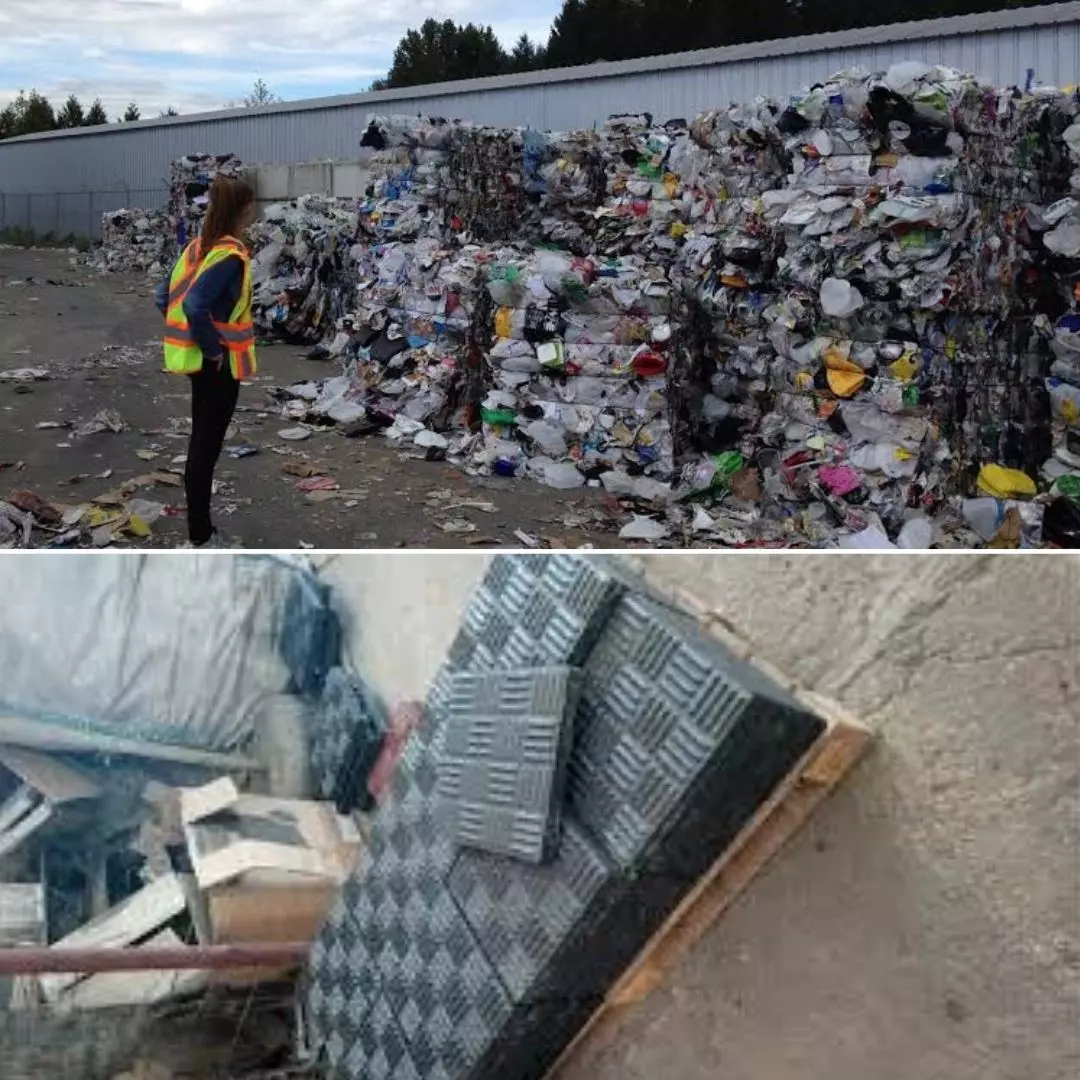While many nations and their policies are directed toward banning and reducing plastic consumption, not many establishments talk about what can be done with the existing pile of plastic waste. An Egyptian startup has been going around picking this plastic waste and turning it into a functional product. So far, they have collected more than five billion plastic bags and cleared out the region by offering a solution for the accumulating waste.
TileGreen, by turning more than five billion plastic bags into tiles “tougher than cement,” provides a solution for two problems at one go – tonnes of waste entering the Mediterranean Sea and high levels of building sector emissions. At the company’s factory on the outskirts of Cairo, one can see workers carrying barrels loaded with mixed plastic waste that people have carelessly discarded into the environment. The company is today responsibly clearing out this garbage, melting it down, compressing them, and creating strong tiles.
These tiles are then sold to real estate developers and contract companies for outdoor paving and other construction. A report by The Print quoted the company’s co-founder Khaled Raafat saying that this is just the beginning, and they aim to have recycled way more than five billion plastic bags by 2025. This aim would not be far from reach in a country like Egypt, which is one of the worst polluters in the Mediterranean region.
While hosting the United Nations COP27 Climate Summit in 2022, the North African country said that the government was working with supermarkets to ban single-use plastics by mid-2023 and ban them on a national level by 2024. Following this, many provinces saw the ban on single-use plastic being imposed. Regardless of this, what can be done with the existing plastic waste continues to be a question. As per a 2020 report by the International Union for Conservation of Nature (IUCN), around 74,000 tonnes of plastic waste enter the sea annually. These numbers are apart from the plastic waste that gets discarded in the street, disposed of in informal dumps, or burned.
https://thelogicalindian.com/h-upload/2023/03/22/500x300_230703-untitled-design-6.webp
Environment
2023-03-22 12:14:11.0
‘Tiles Tougher Than Cement’: Here’s How This Egyptian Startup Is Resolving Plastic Waste Menace













